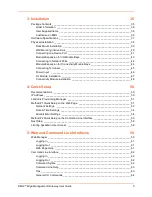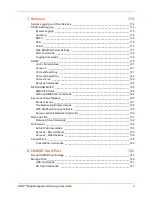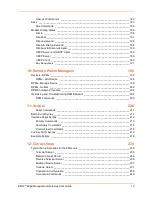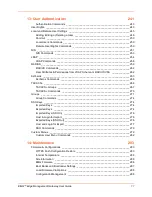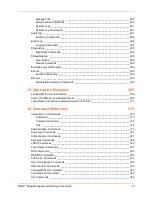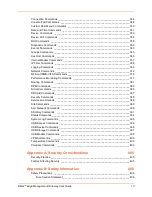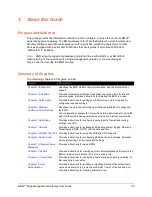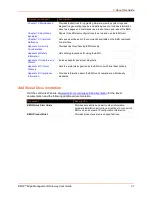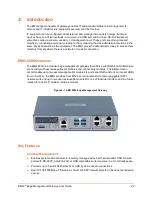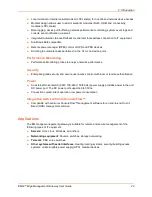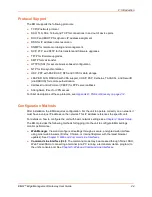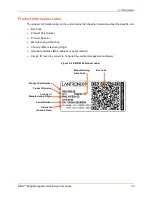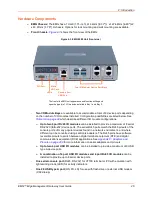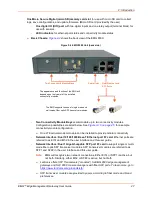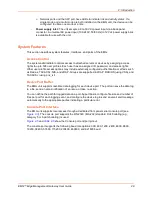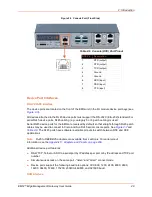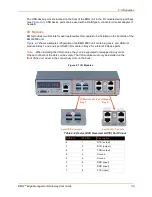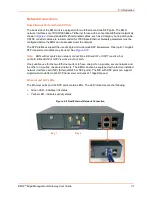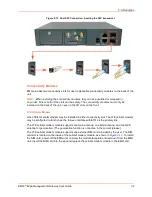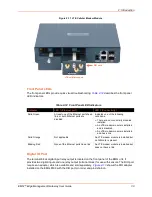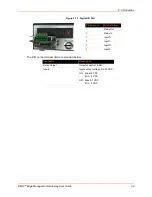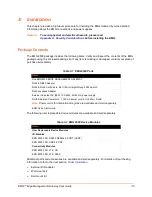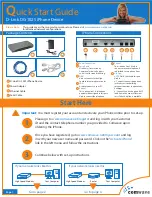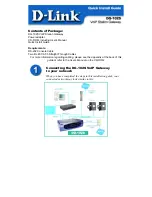
EMG™ Edge Management Gateway User Guide
20
1: About this Guide
Purpose and Audience
This guide provides the information needed to install, configure, and use the Lantronix EMG™
edge management gateway. The EMG gateway is for IT professionals who must remotely and
securely configure and administer servers, routers, switches, telephone equipment, or other
devices equipped with a serial port for facilities that are typically remote branch offices or
“distributed” IT locations.
Note:
EMG edge management gateways are referred to as either EMG or as EMG 8500
when referring to the specific series. Edge management gateway or console manager
may be used to describe the EMG devices.
Summary of Chapters
The remaining chapters in this guide include:
Chapter
Description
Describes the EMG models, their main features, and the protocols they
support.
Provides technical specifications; describes connection form factors and
power supplies; provides instructions for installing the EMG in a rack.
Provides instructions for getting your EMG unit up and running and for
configuring required settings.
Describes the web and command line interfaces available for configuring
the EMG.
The configuration chapters (6-15) provide detailed instructions for using the
web interface and include equivalent command line interface commands.
Provides instructions for configuring network ports, firewall and routing
settings, and VPN.
Provides instructions for enabling and disabling system logging, SSH and
Telnet logins, SNMP, SMTP, and the date and time.
Provides instructions for using the USB and SD Card ports.
Provides instructions for configuring global device port settings, individual
device port settings, and console port settings.
Provides instructions for using RPMs.
Provides instructions for creating scripts to automate tasks performed on the
EMG command line interface (CLI) or on device ports.
Provides instructions for configuring connections and viewing, updating, or
disconnecting a connection.
Provides instructions for enabling or disabling methods that authenticate
users who attempt to log in via the web, SSH, Telnet, or the console port.
Provides instructions for creating custom menus.

